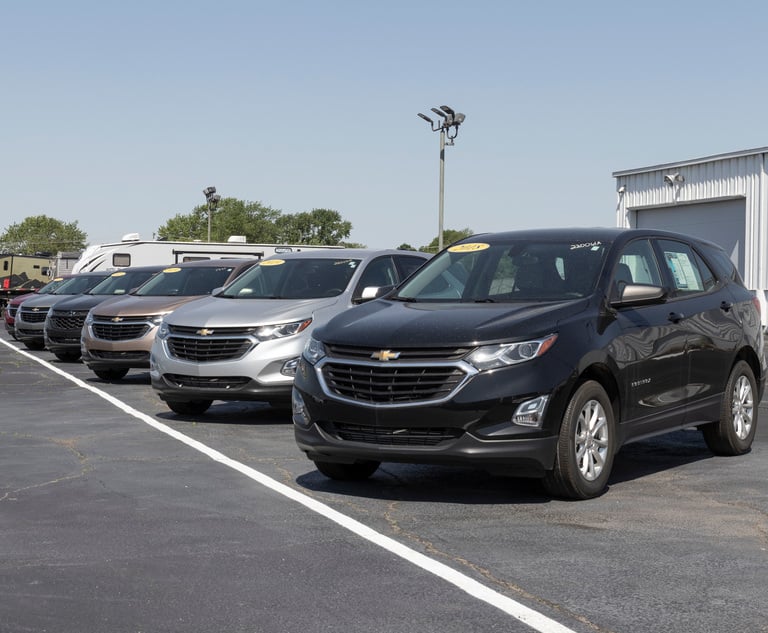 Chevy Equinox on sale. Credit: jetcityimage/Adobe Stock
Chevy Equinox on sale. Credit: jetcityimage/Adobe Stock
Cox Automotive, which a few weeks ago had expected auto sales to rise this year, said it now thinks sales are more likely to fall as tariffs disrupt supplies and contribute to higher prices.
Cox Automotive’s Dec. 17 forecast had new car sales rising 2% to 16.3 million. Its March 26 forecast has new car sales either falling 2% to 15.6 million, assuming some tariffs over an extended period, to rising 2% to the original 16.3 million forecast if tariffs remain mostly talk.
Recommended For You
Used car sales, which had been expected to be 37.8 million this year, now are forecast to be 37.6 million to 38 million.
Chief Economist Jonathan Smoke said the new forecast ranges reflect what would happen with “some tariffs implemented but not the extreme that turns into a global trade war.”
“With so much uncertainty, a single forecast just won’t cut it in this market,” Smoke said during Cox Automotive’s forecast call Wednesday.
“While we have modeled what a full-blown trade war leading to a recession would cause, the ranges shown here do not include the more negative recession scenario,” Smoke said. In the case of an escalating trade war, Cox Automotive said it expects a recession to start by the fourth quarter and new car sales to fall to 15.3 million this year with “even lower sales next year.”
Hours after the Cox Automotive forecast was released, President Donald Trump announced from the White House that he will be implementing a additional 25% tariff on all auto imports.
“The disruptions and heightened uncertainty caused by such tariffs could result in the first quarter actually turning out to be the high point for the year,” Smoke said.
First-quarter sales are expected to be at a seasonally adjusted annual rate of 15.8 million, up 2.2% from 15.5 million a year ago, but down 4.5% from 16.5 million in the fourth quarter.
During the Dec. 17 forecast call, Smoke said he was more optimistic about prospects for the U.S. economy and healthy car sales than he could recall. “We can stop fretting about a soft landing and acknowledge we’re still flying,” he said then. “We’ve navigated restrictive rates, slowing job growth and increasing unemployment.”
Over the past two months, Smoke said uncertainty has grown dramatically as Trump has talked tariffs, imposed some and withdrawn some.
“If we do see circumstances turn for the negative, it will be a squandered opportunity as we were poised for continuing growth,” Smoke said.
Car sales are already being hurt by higher prices. Interest rates had been falling in late 2024, but are now rising to record levels. The stock market’s recent drops have discouraged wealthier potential buyers. Dealers are offering fewer incentives.
The next round of tariffs will take an even greater toll, Smoke said. President Trump has said the postponed 25% tariffs on Canada and Mexico will go into effect April 2, which will trigger reciprocal tariffs from those countries.
Smoke said the tariffs would raise costs by $3,000 for a U.S.-made vehicle and by $6,000 or more for one made in Canada or Mexico.
“If the tariffs go through this time, by mid-April, we expect disruption to virtually all North American vehicle production amounting to 20,000 fewer vehicles produced per day, which is about a 30% hit to production,” he said. “Over the longer term, we expect sales to fall, new and used prices to increase and some models to be eliminated if those tariffs persist.”
Contact Jim DuPlessis at [email protected].
© Touchpoint Markets, All Rights Reserved. Request academic re-use from www.copyright.com. All other uses, submit a request to [email protected]. For more inforrmation visit Asset & Logo Licensing.







